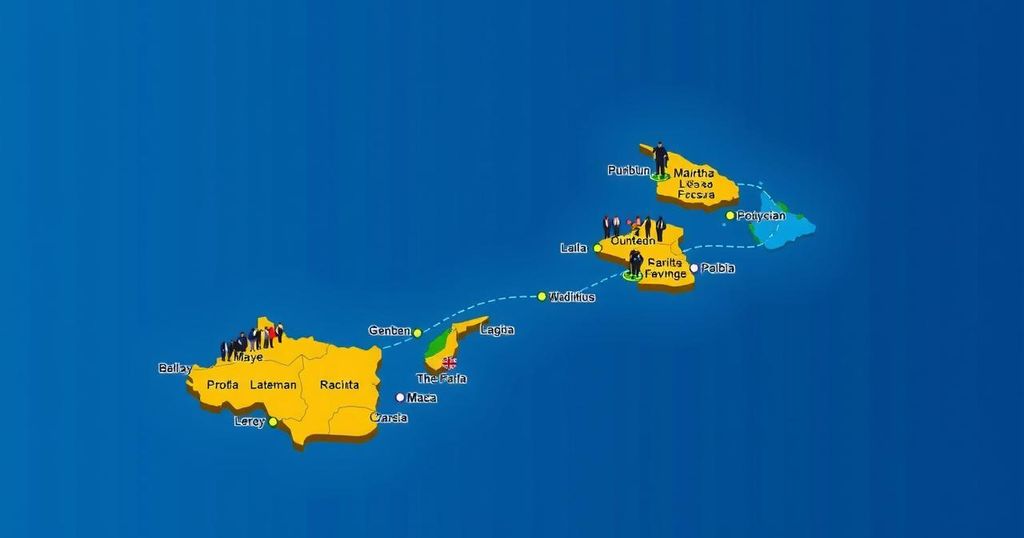Mauritius voted in parliamentary elections amidst a phone-tapping scandal that impacted incumbent Prime Minister Pravind Jugnauth’s campaign. While the elections focused on economic stability, concerns over governance were exacerbated by the leak of private conversations and a controversial social media ban. Ramgoolam’s opposition expressed confidence in victory, while electoral turnout was reported at 70% just before polls closed. Results are expected soon, with significant implications for the country’s stability and political integrity.
Mauritius held parliamentary elections on Sunday amid heightened tensions due to a phone-tapping scandal. This election was crucial for the economic and political stability of the nation, particularly following a pivotal agreement last month involving the cession of the Chagos Islands from Britain to Mauritius. Incumbent Prime Minister Pravind Jugnauth faced challenges to his potential re-election as leaked recorded conversations of various political figures undermined his position ahead of the vote. In attempting to manage the fallout from the scandal, the government temporarily banned social media; however, they retracted this decision after facing backlash from the opposition and civil society. This incident has raised alarms about the gradual erosion of democratic values and civil liberties in the country. The elections were contested primarily between Jugnauth’s Militant Socialist Movement and the opposition Alliance of Change led by former Prime Minister Navin Ramgoolam. As votes were cast, turnout was reported at 70% as of one hour before polls closed, with results expected the following day. Historically, more than one million citizens were registered to participate in this 12th election since gaining independence. Observing the elections were officials from the African Union, among others, ensuring a fair process. Ramgoolam, who emphasized the need for proper electoral integrity, expressed confidence in a forthcoming victory, stating, “The people are waiting for this liberation.” Despite the recent discussions surrounding improvements in governance, analysts expressed concerns regarding increasing corruption and governance failures over the past five years. The nation experienced remarkable economic growth of seven percent in 2023; however, calls for economic diversification are urgent. Changes in leadership and strategies are necessary for ensuring sustainable development and stability, especially as governance reviews highlighted a significant decline in institutional efficiency and integrity.
Mauritius is recognized as one of Africa’s stable democracies, maintaining a significant degree of political and economic prosperity since gaining independence from British rule in 1968. Recent controversies, particularly related to governance and corruption, have raised concerns among citizens and observers. The political landscape has been predominantly shaped by a few ruling families, contributing to accusations of nepotism and ineffectiveness amidst economic challenges. The recent agreement on the Chagos Islands highlights both the achievements and complications faced by the Mauritian government, impacting voters’ perspectives on civil rights and democratic practices.
The parliamentary elections in Mauritius highlighted the dichotomy between political stability and the emerging scandals affecting governance and democracy. As citizens await the final election results, the implications of these events on Mauritius’s political landscape and economic future remain to be seen. The emphasis on addressing corruption and diversifying the economy will likely be paramount for whichever party comes out victorious, as the nation seeks to navigate its challenges in a stable and democratic manner.
Original Source: www.guampdn.com






